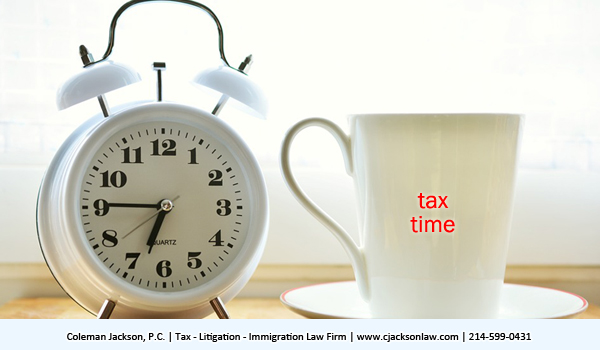By: Coleman Jackson, Attorney & Certified Public Accountant
March 07, 2020
Thinking about spending that money withheld from employees’ wages to take a tour of the world, pay other business expenses or house payments? Don’t do it before reading Internal Revenue Code Section 7702! Hear those alarm bells ringing! Anyone required to collect, account for, and turn over to the United States Treasury and willfully fails to carry out this duty are subject to severe civil penalties and upon being found guilty of the felony of failing to collect, account for, and turn over can be fined up to $10,000 and spend up to five years in federal prison. Payroll tax fraud is a serious crime that is commonly investigated by the IRS Criminal Investigation (CI) Division. This unit of the IRS investigates all kinds of violations of the Internal Revenue Code. CI along with the Financial Crimes Network investigates FBAR violations (these are U.S. persons with foreign bank accounts and other foreign assets who fail to timely and accurately disclose these holding on Form 114), money laundering (these are individuals or entities engaged in some kind of unlawful activity and endeavoring to get dirty money into the normal banking system) and other financial crimes.
Thinking about not filing that required income tax, gift tax or other federal tax return or providing fraudulent information the IRS? Don’t do it before reading Internal Revenue Code Sections 7207 and 7203! Hear those whistles blowing! Anyone who intentionally gives false documents, which includes returns and any other written representation to the Internal Revenue Service and any of its employees knowing that its materially false or fraudulent is subject to civil fines and upon being found guilty of the felony of giving the Service false returns or other documents can be fined up to $10,000 (if individual) and up to $50,000 (if corporation), and spend up to one year in federal prison. Multiples applies in that cumulative false statements, returns and documents can generate multiplication of the civil fines and additional years to the duration of the prison term.
Thinking about paying fewer taxes than is lawfully owed by engaging in creative accounting, leaving that or this item off the return while adding and dreaming about things that never happened? Don’t do it before reading Internal Revenue Code Section 7201. Hear those gongs clanging! Anyone who intentionally attempts to evade or defeat any tax imposed under the Internal Revenue Code is subject to civil penalties up to $100,000 (if individual) and up to $500,000 (if corporation), and spend up to five years in federal prison upon conviction.
Thinking about taxes? Stay away from the tumbling … lie.
This law blog is written by the Taxation | Litigation | Immigration Law Firm of Coleman Jackson, P.C. for educational purposes; it does not create an attorney-client relationship between this law firm and its reader. You should consult with legal counsel in your geographical area with respect to any legal issues impacting you, your family or business.
Coleman Jackson, P.C. | Taxation, Litigation, Immigration Law Firm | English (214) 599-0431 | Spanish (214) 599-0432




